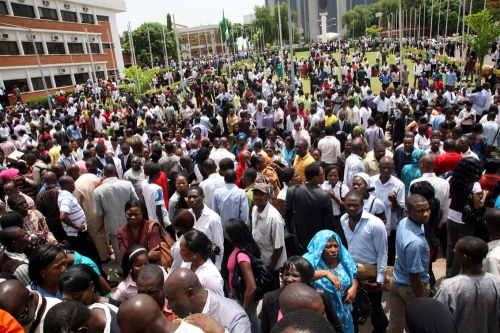Featured
‘Camps For Six Million Displaced Nigerians’ Victims Of Boko Haram

The House of Representatives on Wednesday asked the Federal Government to establish rehabilitation camps for an estimated six million internally-displaced persons in Borno, Adamawa and Yobe states, who had become victims of attacks by Boko Haram insurgents.
In a resolution in Abuja, the House noted that many survivors of the “destructive” activities of the sect had been rendered homeless, lacking access to food supplies and healthcare.
“Recently, the United Nations’ Office ýin Nigeria put a figure of six million people, who are directly affected by the crises in the three states,” Mr. Abdulrahman Terab, the sponsor of a motion on the issue, told the House.
Terab, who is from Borno State, said affected towns and villages had long been deserted, leaving the victims to roam about with no one to help them.
He spoke further, “These internally-displaced persons, among whom are women, children and the vulnerable, are lacking basic healthcare, sanitation, shelter and food.
“Despite the vulnerability of people around these three states, there is no official camp to settle them, forcing them to squat in untold environments.
“This has made them vulnerable to various hazards, such as snake bite and diseases like Cholera and Diarrhea, among others, more especially children and women.”
He added that the official government figure of the displaced persons was already put at four million people.
“Four million is already the size of a country. So, we are faced with another major crisis on our hands. If Nigeria is broken apart, there is no country in Africa that can afford to accommodate ourý refugees,” Terab warned.
Many lawmakers backed the motion and agreed that it was a good idea to begin to think seriously about the welfare of the displaced persons.
One of the lawyers, who is from Taraba State, Mr. Jerry Manwe, blamed the situation of the victims on the failure of relevant government agencies to perform their duties.
He observed that the National Refugee Commission and other care givers ýhad simply shied away from their responsibilities, at a time their services were most needed.
Content Credit: PUNCH






